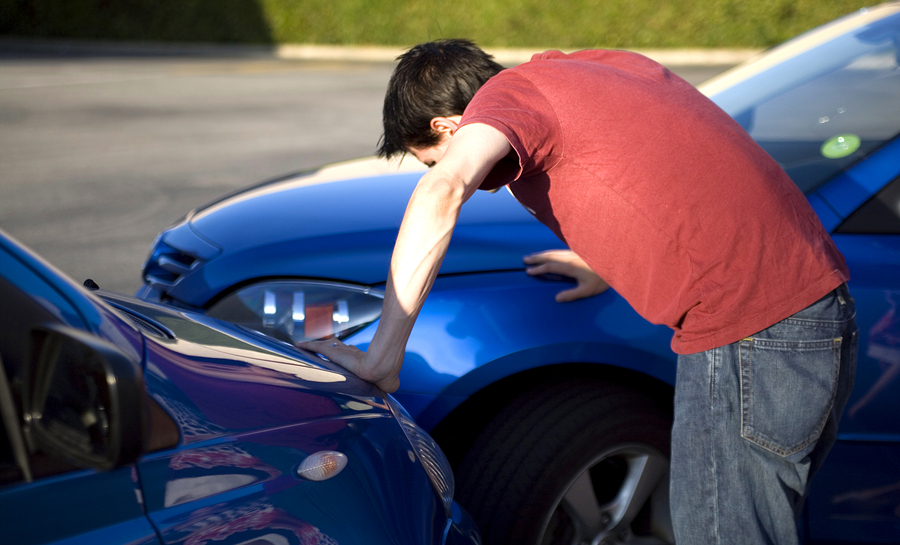Between a dense and car-dependent population and chronic traffic congestion, Los Angeles is one of the biggest contributors to motor vehicle accident stats across the country. Whether your vehicle is only cosmetically damaged or completely undrivable without major repairs, your insurer may declare it totaled — but what do insurance companies do with totaled cars, and what are your obligations?
From obligatory insurance processes to donating, selling, or repairing your vehicle, learn more below about what to do with a totaled car.
What Do Insurance Companies Do with Totaled Cars?
Following a collision, insurance companies follow procedures to provide you with the appropriate compensation depending on the circumstances and your insurance policy.
Vehicle Appraisal Factors
Insurance companies calculate the overall worth of your vehicle after an accident. After a certain threshold of damage, typically around 75% of the vehicle’s value, they’ll deem your car totaled. Your insurer will take the depreciation and other factors into account and consult with Kelly Blue Book and other databases.
Appraisal factors include:
- Year, make, and model
- Mileage
- Pre-total condition
- Fair market value
- Salvage value
How adjusters determine the value of your totaled car
California insurance companies use the total loss formula, which compares the repair costs and salvage value with the actual cash value. If the combined cost of repair and salvage value (value of parts) is more than the actual cash value, insurers will declare the vehicle a total loss.
If you have collision and comprehensive insurance, insurance companies set the total loss value you’re entitled to by calculating the value of your car minus any deductible you may owe. If you contributed to the accident, the adjuster may deduct a percentage of contributory negligence. The insurance company will write you a settlement check for the final amount if you own your vehicle. If you’re leasing, the lender receives the payout.
You can negotiate for a better offer if you disagree with your insurer’s settlement offer. With supporting documentation, you can argue factors such as your car’s features, comparable sales of similar vehicles, and vehicle retail values from databases.
Additional auto insurance for totaled cars
Gap insurance can cover the financial gap between the amount your policy covers and what you owe on your car loan or lease. For example, if you have a $20,000 car loan on a vehicle valued at $17,000 before it was totaled, and your settlement check provides you with $16,500 after a $500 deductible, then gap insurance covers the remaining $3,500.
New car replacement insurance can offer better advantages than a settlement check. If your car meets your insurance company’s criteria, you’ll receive a new car of comparable make and model of your car before depreciation.
Options for totaled cars with no insurance
Collision and comprehensive insurance covers totaled vehicles, regardless of who’s at fault. Without insurance, you’re on the hook for any damage you cause to your vehicle. If another driver damages your vehicle, their liability insurance should cover the costs. If the at-fault driver doesn’t have insurance, uninsured motorist coverage can cover a limited amount of a totaled car’s value.
Options For Your Totaled Car
Depending on your circumstances, selling, donating, and other options for your totaled car can offer certain advantages.
Continue using the car
If your totaled car is still driveable, you can continue using it once the DMV deems it roadworthy. You’ll first declare your vehicle a total loss salvage with the DMV, then make the appropriate repairs so it’s safe and roadworthy. If the DMV inspection approves your vehicle, you can re-register it as a revived salvage vehicle.
Trade-in at a dealership
You can trade in a totaled car to a dealership under some circumstances. Some automotive dealerships may purchase your salvage-titled vehicle if it’s in reasonable condition or still has salvageable parts, but many may opt-out as these vehicles often present high repair costs and can be difficult to sell. Dealerships may be more inclined to purchase your car if you plan to trade in a totaled vehicle for another car, but simply selling the vehicle may result in a low sale offer.
Sell to a junkyard
Selling to a junkyard can be a great option if you can’t sell to a dealership or private buyer. Some junkyards pick up your car as part of the sale. Check with the DMV within a few days of the sale to ensure the title transfer is complete.
Donate your vehicle
Many charities accept totaled vehicles and may even offer modest compensation or free pickup. If you satisfy IRS conditions, your donation may be eligible for tax breaks — you can typically claim a deduction of up to $500 on your Form 1040EZ when filing your taxes. Make-A-Wish, Kars4kids, Vehicles for Veterans, and other organizations accept car donations.
Your Totaled Car and the DMV
If your vehicle isn’t worth repairing, your insurance company can guide you through the process of registering your totaled car to the DMV. Once you complete the appropriate forms, the DMV will issue a Salvage Certificate to verify your ownership.
To get a Salvage Certificate, you’ll need:
- A completed application form
- Proof of ownership or approved replacement title
Ensure Your Rights with the Law Offices of Jacob Emrani
While the immediate stress of a collision in LA is unavoidable, the aftermath shouldn’t cause unnecessary inconvenience. If you feel the insurer or adjuster incorrectly evaluated your totaled car or assigned a larger share of the fault than you deserve, Jacob Emrani’s team of LA-based total loss lawyers can help.
With an expert Los Angeles total loss attorney on your side, you can trust in getting the best possible outcome. Call (888) 402-8432 to set up your no-cost case evaluation!



